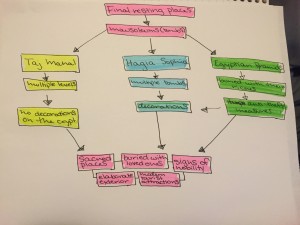I don’t think the Tohono O’odham people had been treated truly fair after the Gadsden Purchase. Their land got divided and they had to work and relocate in order to keep their people and their traditions together. Luckily they were able to continue to go to school, and have the right to practice their religious beliefs, along with having access to more than one type of church.
From an ethical standpoint I think it is unfair for outside sources to demand that they need to move around to suit whatever the outside source needs. By treating a group of people this way it sends a message that they are not important, and all of the work they put into establishing a place to live is disposable.
Looking at the legalities that were put into effect for the Tohono O’odham Nation it was disappointing to see that in the 1980’s they had to discover a legal decision that was made in 1908 called the Winters Doctrine that gave them rights to much of the ground water in their area. This Doctrine should have been overlooked and found later on, the country should have been working to make sure that not only the Tohono O’odham Nation, but all reservations, were receiving all of their rights. Once they had discovered that they weren’t receiving all of the things that were legally promised to them the president at the time, Jimmy Carter, encouraged them to use less water because the water was needed elsewhere.
The Tohono O’odham Nation some positive things going for them, but in the grand scheme of things were not treated correctly and both a legal and ethical level. They should be treated as citizens, and should have access to everything that they were promised.
